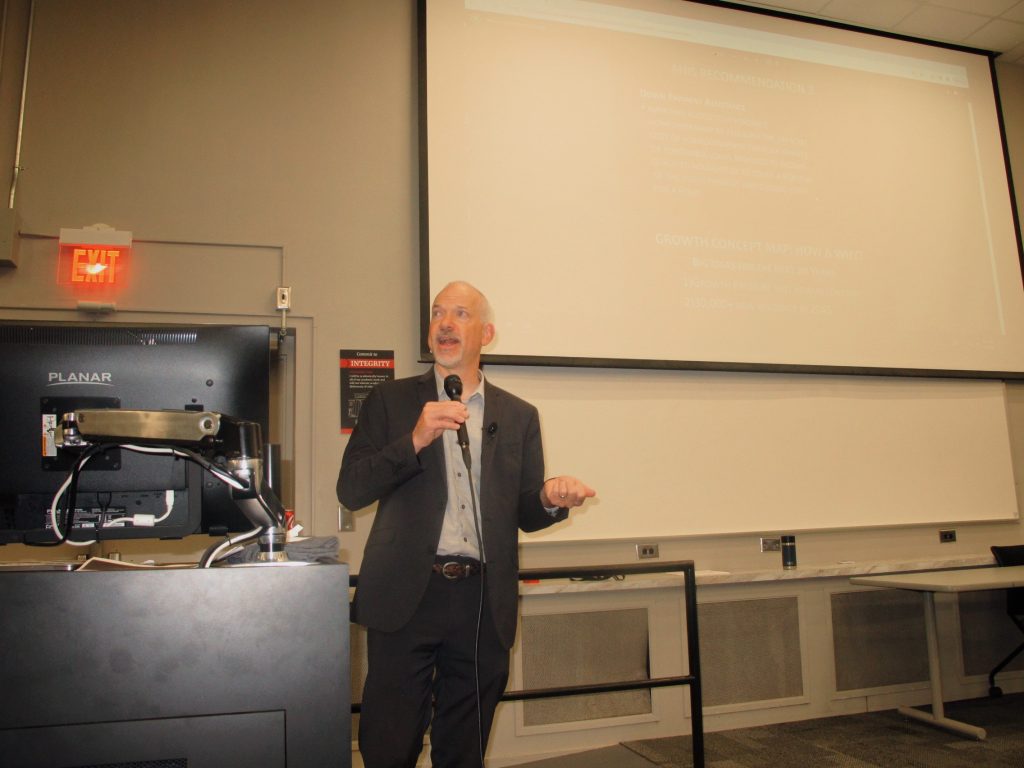By: Gabrielle Gruszynski

Mayor Kelly Girtz addressed the potential to modify Land Ordinance 9-15-18, a residential ordinance that limits the number of students that can rent housing in areas zoned for single-family use in a University of Georgia Grady College of Journalism and Mass Communication press conference on Friday.
“I do think that there is some movement for modification in our code,” Girtz said. “Two is more restrictive than Gainesville, Florida or Minneapolis, or so many other places that have a similar code. We can probably move to at least three.”
The current ordinance allows for no more than two, unrelated individuals to reside together in the same household. This regulation presents a challenging scenario for students seeking affordable housing in a burgeoning community.
Over 40,000 students are currently enrolled at the University of Georgia, accounting for almost 31% of the Athens-Clarke County population. According to Girtz, UGA is expected to add 10,000 students in the next decade, while the County population is estimated to increase by 30,000 individuals in 2045.
Downtown student apartment complexes are endorsed by the university as off-campus housing options. Though convenient, these apartments are notoriously expensive. Boasting luxury amenities and a central location, monthly prices for a room, excluding utilities and internet, can cost between $746-$1,218.
This is assuming the student chooses to have multiple roommates — one-bedroom apartments downtown average almost $2,000 per month.
The planning committee’s decision to continue licensing these apartments in an oversaturated market potentially raises questions.
“Students are coming in with a lot of college paid for and coming from wealthy parts of Atlanta, for the most part, you know, is a big thing,” said Marc Beechuk, the comprehensive planning coordinator for the Athens-Clarke County Planning Development Staff. “Obviously, not everyone, not everyone’s wealthy, but that allowance seems to have allowed students to afford more and the market has responded and the market is obviously asking for more. There’s a little bit of push-pull there.”
Historic homes dotting the greater Athens area are often available for student rental throughout the year. Rent prices decrease the farther these homes are located from downtown’s epicenter and pre-existing apartment complex options. Yet, as students explore rental homes with multiple roommates, the residential land ordinance presents an exasperating challenge.
Girtz urged students to share their viewpoints and ideas regarding Ordinance 9-15-18 and future land use. Through April, Athens-Clarke County residents had four opportunities to attend formal input sessions. These sessions allowed citizens to provide feedback and address concerns to the county planning department staff. The final session occurred on Thursday, April 18.
The online future land use map survey remains accessible until April 30.
As discussion continues addressing affordable housing for students and potential modifications to Ordinance 9-15-18, Girtz’s reflections underscore the complexities involved in accommodating the evolving needs of the Athens-Clarke County student population.
“So, I’m certainly open to some growth in this question,” Girtz said. “Whether that could make it across to day as to approval? I have my doubts.”
Why I Wrote the Story:
Topics that I can relate to or are particularly passionate about make the writing process flow much easier for me. Prior to writing this piece, I was both stressed and stumped; to be honest, I couldn’t pinpoint an interesting lead or viewpoint associated with future land use in Athens. Initially, I didn’t feel a deeper connection to the subject matter. However, after taking a step back from my work, I decided to frame my story within one of the prompts we discussed in class: how Land Ordinance 9-15-18 affects college students searching for affordable housing. Being a student at UGA, I’m well aware of how difficult it is to secure off-campus housing while not breaking the bank. Once I found this outlet, the story flew out of my head and onto the page.